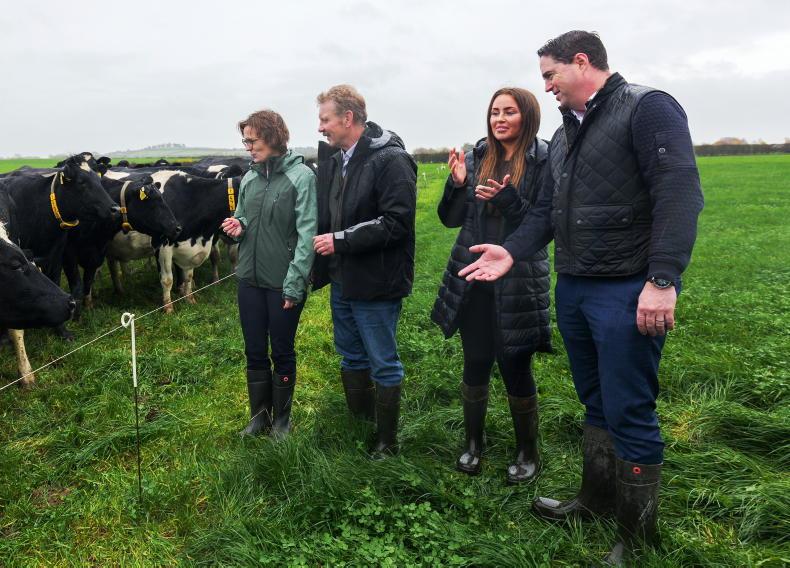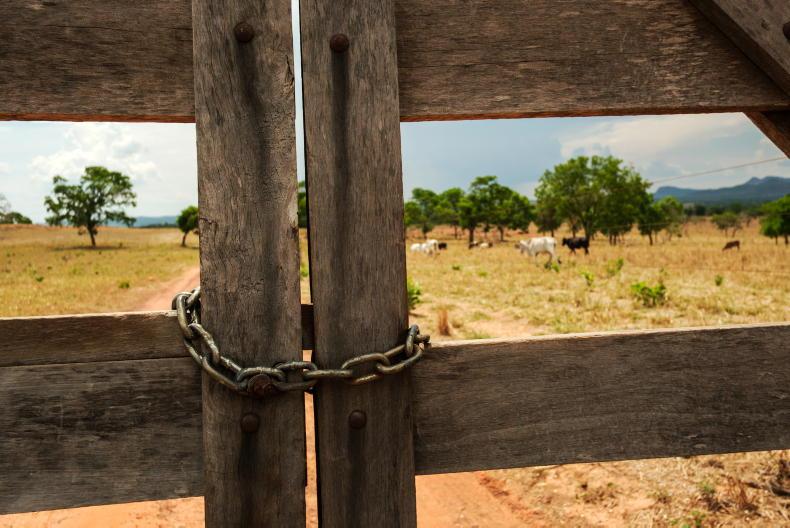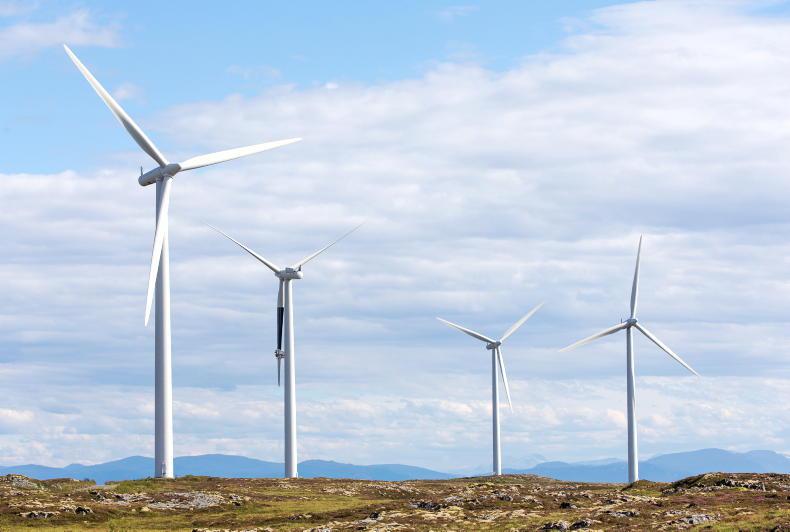“I married a farmer, gave up my job to rear our children, had to feed dinners to men in the yard etc. My husband would have little respect for me. Now one of my children and my husband are forming a company with the farm. I am gone demented.
“They are putting in all the finances: milk cheque, EU payments, OAP pensions, which breaks my heart as I was really enjoying it. Have I any rights in this situation? It’s awful when we should be enjoying our lives after all the hardship.”
I am sorry to hear that you find yourself in this situation. The short answer is “No” unless your husband includes you in the company and/or makes you a part-owner in the business. There is a misconception that once you are married that you automatically own half of your spouse’s assets. That is not the case. The old saying “you go up the aisle with a full farm and come down with half a farm” does not ring true.
I am assuming that the land is in your husband’s sole name. Unless he agrees to transfer it into joint names, you cannot necessarily compel him to do so. While there are legal protections available in the event of a death, they are of little value if he has divested himself of his assets before he dies. However the OAP or state pension I would have thought you should be able to claim in your own right and your consent would be required to pay it into a different bank account. Even if you do not have enough PRSI contributions to qualify for a pension in your own right, you could be entitled to an increase for a qualified adult. The rules provide that if a person applies for the state pension (contributory or non-contributory), the increase for a qualified adult will automatically be paid directly to the adult dependent i.e. you. However the adult dependent may choose to have it paid with the spouse’s payment instead so that if you did do this, it would be worth contacting the department of social protection and asking them to pay it to you directly.
Legal right share
In a Will situation, a spouse is entitled to what’s called their Legal Right Share which is one third of the estate where there are children or half of the estate where there are no children. You can elect to take what was provided for you under the Will or take your Legal Right Share. It’s to protect a spouse where proper provision was not made for him/her under a Will.
In an Intestacy situation i.e. where the spouse had no Will, the rules of Intestacy apply whereby the spouse is entitled to two thirds of the estate where there are children or the full estate where there are no children.
However what can happen is that a spouse could have transferred all the land, stock, machinery etc to a child/nephew/niece etc while they are alive and there is no obligation on them to get prior consent from a non-owning spouse. They would have to get prior consent if it included a family home. This arises due to protections afforded under the Family Home Protection Act, 1976 to prevent a spouse transferring a family home out from underneath the non-owning spouse without their knowledge or consent.
While solicitors would normally make enquiries to determine whether there are dependent spouses or children, it is at the discretion of the owner as to whether they disclose that or not. Further, while a solicitor will normally advise a landowner not to divest themselves of their assets without making some provision for themselves and spouses in terms of rights of support and maintenance, again the solicitor cannot necessarily insist on such provision being made where the landowner does not want it. The landowner must sign a declaration of solvency as part of any transfer declaring that they are solvent without recourse to the land/assets being transferred otherwise the transaction could be revoked. Further they must sign a declaration confirming that the property does not comprise a family home and that no family law proceedings are threatened or in being.
Family law
By family law proceedings, I mean judicial separation proceedings and thereafter possibly divorce. This is generally only a matter of last resort as marriage breakdown affects all aspects of a person’s life and can make people feel particularly vulnerable at a time as you say when you should be enjoying your life. However it would provide an avenue for you to claim an entitlement from the farm in terms of property adjustment orders and maintenance particularly if you have contributed to the farm over the years.
There could also be scope for equitable proceedings where you claim an equitable interest in the lands, stock, entitlements etc. by reason of your direct (financial) and indirect (keeping the family/house going) contribution over the years. Again, this would probably involve mounting a legal challenge against your spouse/son unless your spouse was willing to acknowledge your interest in the lands etc.
It’s an issue that affects many women on farms unfortunately, but is rarely voiced as it is such a sensitive topic. It was flagged as something that needs to be addressed as part of the Government’s recent National Dialogue on Women in Agriculture. It is important that women get the recognition they deserve on Irish farms and there is a lot of work still to be done in this area.
Disclaimer: The information in this article is intended as a general guide only. While every care is taken to ensure accuracy of information contained in this article, Aisling Meehan, Agricultural Solicitors does not accept responsibility for errors or omissions howsoever arising. E-mail aisling@agrisolicitors.ie
Read more
Legal query: right of return of an infertile bull
Legal query: ‘property being scoped for robbery’
“I married a farmer, gave up my job to rear our children, had to feed dinners to men in the yard etc. My husband would have little respect for me. Now one of my children and my husband are forming a company with the farm. I am gone demented.
“They are putting in all the finances: milk cheque, EU payments, OAP pensions, which breaks my heart as I was really enjoying it. Have I any rights in this situation? It’s awful when we should be enjoying our lives after all the hardship.”
I am sorry to hear that you find yourself in this situation. The short answer is “No” unless your husband includes you in the company and/or makes you a part-owner in the business. There is a misconception that once you are married that you automatically own half of your spouse’s assets. That is not the case. The old saying “you go up the aisle with a full farm and come down with half a farm” does not ring true.
I am assuming that the land is in your husband’s sole name. Unless he agrees to transfer it into joint names, you cannot necessarily compel him to do so. While there are legal protections available in the event of a death, they are of little value if he has divested himself of his assets before he dies. However the OAP or state pension I would have thought you should be able to claim in your own right and your consent would be required to pay it into a different bank account. Even if you do not have enough PRSI contributions to qualify for a pension in your own right, you could be entitled to an increase for a qualified adult. The rules provide that if a person applies for the state pension (contributory or non-contributory), the increase for a qualified adult will automatically be paid directly to the adult dependent i.e. you. However the adult dependent may choose to have it paid with the spouse’s payment instead so that if you did do this, it would be worth contacting the department of social protection and asking them to pay it to you directly.
Legal right share
In a Will situation, a spouse is entitled to what’s called their Legal Right Share which is one third of the estate where there are children or half of the estate where there are no children. You can elect to take what was provided for you under the Will or take your Legal Right Share. It’s to protect a spouse where proper provision was not made for him/her under a Will.
In an Intestacy situation i.e. where the spouse had no Will, the rules of Intestacy apply whereby the spouse is entitled to two thirds of the estate where there are children or the full estate where there are no children.
However what can happen is that a spouse could have transferred all the land, stock, machinery etc to a child/nephew/niece etc while they are alive and there is no obligation on them to get prior consent from a non-owning spouse. They would have to get prior consent if it included a family home. This arises due to protections afforded under the Family Home Protection Act, 1976 to prevent a spouse transferring a family home out from underneath the non-owning spouse without their knowledge or consent.
While solicitors would normally make enquiries to determine whether there are dependent spouses or children, it is at the discretion of the owner as to whether they disclose that or not. Further, while a solicitor will normally advise a landowner not to divest themselves of their assets without making some provision for themselves and spouses in terms of rights of support and maintenance, again the solicitor cannot necessarily insist on such provision being made where the landowner does not want it. The landowner must sign a declaration of solvency as part of any transfer declaring that they are solvent without recourse to the land/assets being transferred otherwise the transaction could be revoked. Further they must sign a declaration confirming that the property does not comprise a family home and that no family law proceedings are threatened or in being.
Family law
By family law proceedings, I mean judicial separation proceedings and thereafter possibly divorce. This is generally only a matter of last resort as marriage breakdown affects all aspects of a person’s life and can make people feel particularly vulnerable at a time as you say when you should be enjoying your life. However it would provide an avenue for you to claim an entitlement from the farm in terms of property adjustment orders and maintenance particularly if you have contributed to the farm over the years.
There could also be scope for equitable proceedings where you claim an equitable interest in the lands, stock, entitlements etc. by reason of your direct (financial) and indirect (keeping the family/house going) contribution over the years. Again, this would probably involve mounting a legal challenge against your spouse/son unless your spouse was willing to acknowledge your interest in the lands etc.
It’s an issue that affects many women on farms unfortunately, but is rarely voiced as it is such a sensitive topic. It was flagged as something that needs to be addressed as part of the Government’s recent National Dialogue on Women in Agriculture. It is important that women get the recognition they deserve on Irish farms and there is a lot of work still to be done in this area.
Disclaimer: The information in this article is intended as a general guide only. While every care is taken to ensure accuracy of information contained in this article, Aisling Meehan, Agricultural Solicitors does not accept responsibility for errors or omissions howsoever arising. E-mail aisling@agrisolicitors.ie
Read more
Legal query: right of return of an infertile bull
Legal query: ‘property being scoped for robbery’










SHARING OPTIONS